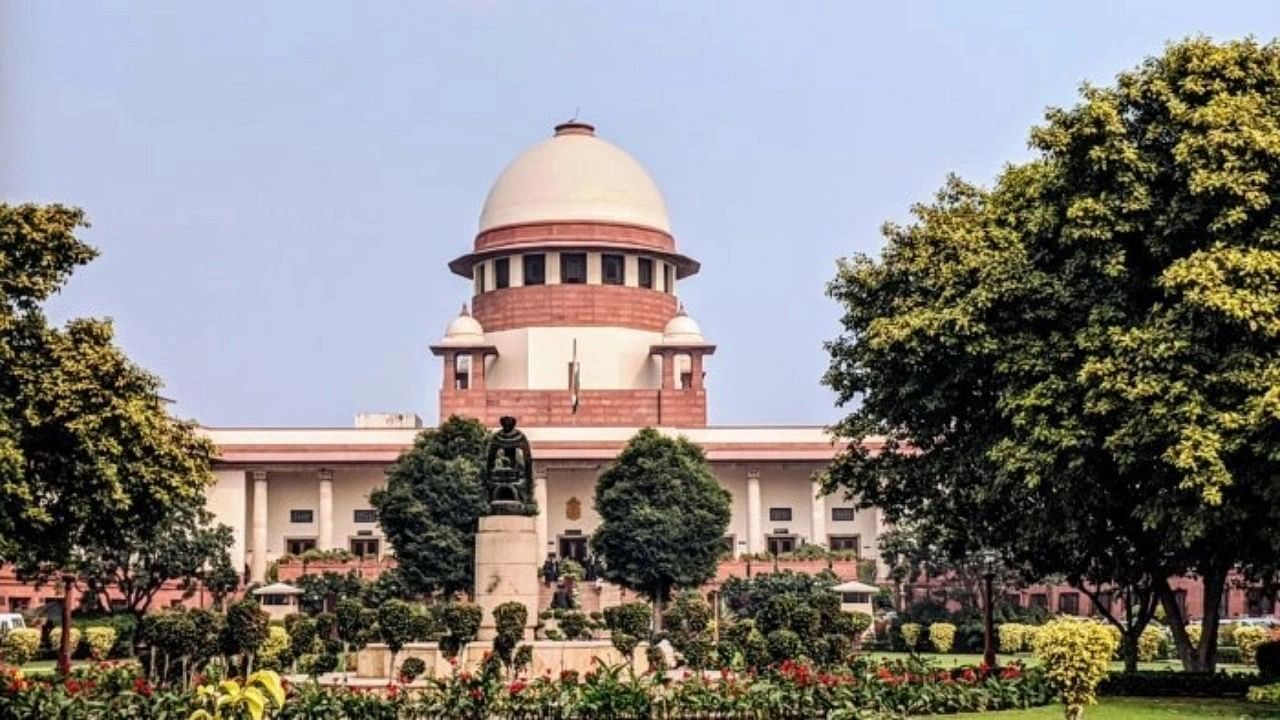
The Supreme Court of India.
Credit: iStock Photo
New Delhi: The Supreme Court on Tuesday reserved its judgment on petitions challenging the constitutional validity of Section 6A which was inserted in the Citizenship Act, 1955, after the signing of the Assam accord.
A Constitution bench of Chief Justice DY Chandrachud, and Justices Surya Kant, M M Sundresh, J B Pardiwala and Manoj Misra, heard arguments from Attorney General R Venkataramani, Solicitor General Tushar Mehta, senior advocates Shyam Divan, Kapil Sibal, Sanjay Hedge, C U Singh and others, for four days before wrapping up the hearing.
During the hearing, Mehta highlighted the progress on fencing the border in West Bengal.
He said that the Centre’s efforts were hindered due to West Bengal's non-cooperation.
One counsel submitted that while the western border was clearly drawn, on the eastern border, it was kept fluid.
He contended that the Indian citizenship is not ethno-nationalist. He said it is not based on language, religion, culture and also there is no superior or inferior citizenship based on ancestry of any time.
Senior advocate CU Singh submitted that the petitioners were not merely seeking their own rights but were attempting to strip away the rights accrued to others over several decades.
He said that Section 6A, which allowed the determination of foreigners as per the Assam Accord, did not violate Article 14 of the Constitution.
Advocate Shadan Farasat for a party emphasised though there is importance of the right to culture, it should not be used to deny someone citizenship.
He raised concerns about the potential shift from civic nationalism to cultural nationalism and questioned the idea of elevating culture to the extent of denying citizenship.
Senior advocate Shyam Divan, for the petitioners, submitted that there was no temporal limit to the operation of Section 6A, meaning that individuals could still apply for citizenship under Section 6A today.
He said there was no machinery or mechanism for evaluating, assessing, or determining the grant of citizenship under Section 6A (2) and pointed out that this was a fatal flaw in the scheme of Section 6A.
The court had earlier questioned the government as to what steps have been taken so far to curb illegal migration into Indian territory and directed it to furnish data on the number of Bangladeshi immigrants granted citizenship in Assam between January 1, 1966, and March 25, 1971, under section 6A (2)of the Citizenship Act, 1955.
